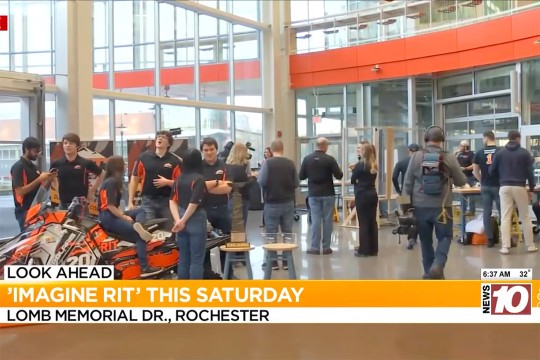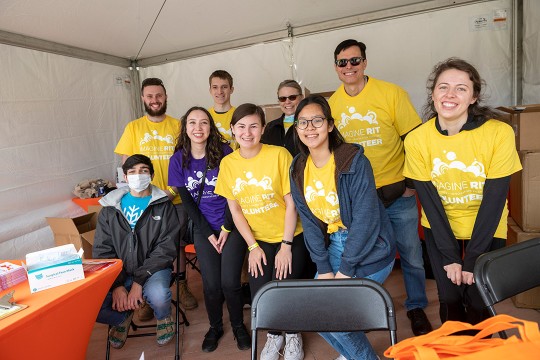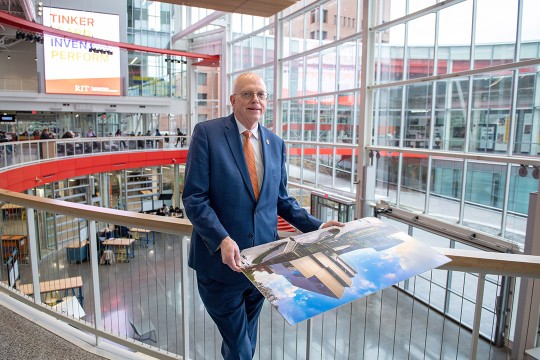RIT Launches New Gannett Project
Rochester Institute of Technology’s Caroline Werner Gannett Chair has taken on a new dimension this year. Sixteen faculty and community members of the Gannett Advisory Board have launched an intercollegiate effort focusing on new intersections of science, social science, technology and the humanities.
In its first stage of activity, the Gannett Project will host a high-profile lecture series entitled “Consilience: The Cognitive Revolution.” The series will encourage conversation about the ways in which natural selection has shaped our bodies and our minds. Talks by biologists, psychologists, doctors, anthropologists and philosophers will explore connections between the social sciences, psychology and science. Their lecture topics will be as diverse as family dynamics, the psychological differences between the sexes, the origins of the aesthetic sense and the adaptive functions of jealousy and depression.
Eugenie Scott will present the first talk, “Making Sense of Biology,” at 8 p.m. on Wednesday, Sept. 20, in Ingle Auditorium in the Student Alumni Union. The event is free and open to the public.
Scott, the executive director of the National Center for Science Education, has been a researcher and an activist in the creationism/evolution controversy for more than 20 years. She has won awards from the National Science Board, the American Society for Cell Biology and the American Institute of Biological Sciences, among other associations.
“As (geneticist and evolutionary biologist Theodosius) Dobzhansky once said, ‘Nothing in biology makes sense except in the light of evolution.’ And that applies equally to the human mind,” says David Merritt, Gannett board member and astrophysicist in the College of Science. “The advances that have been made in evolutionary psychology are nothing short of revolutionary, and I hope this lecture series will bring these exciting new ideas to a wider audience.”
Adds Mary Lynn Broe, Caroline Werner Gannett Professor: “Because each of the speakers works on the edge of several different disciplines, their talks should suggest exciting new modes of cooperation between science and the humanities and engender a broader understanding about the role of evolution in unifying the branches of knowledge.”
Later stages of the Gannett Project will draw upon community resources, and will include new course offerings and related activities involving faculty and students across the university.
For more information, visit the Gannett Web site at www.rit.edu/~cwg/ or contact Cassandra Shellman at 475-2057.














